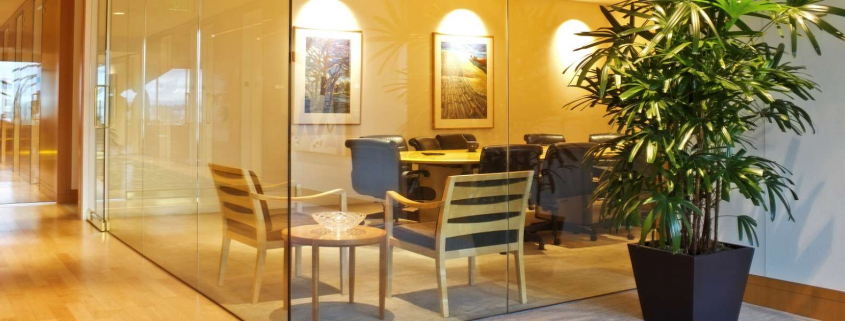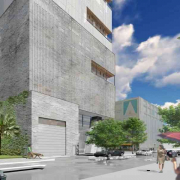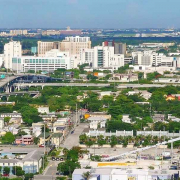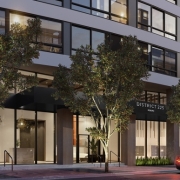Rents for Class A office space in Miami are high, at $50 or more per square foot, and will continue rising as the market tightens, real estate experts told attendees at a recent conference.
Panelists also said that, despite the city’s increasing traffic problems, they expected sustainable demand growth for Miami commercial properties in the future, since the city is an appealing location and a gateway to Latin America.
“The market is tightening up,” said Angelo Bianco, managing partner at Crocker Partners during the Bisnow panel event. “Developers are getting better rates and lower concessions.” At the same time, he added, “Capital markets seem to be taking a break and people are more cautious. Deals are taking longer to close.”
Asked if office rents in Miami were becoming too expensive, W. Allen Morris, chairman and CEO of The Allen Morris Co., said that rents here were high compared to a city like Atlanta, “but they’re low compared to other global cities like New York, London, San Francisco or Chicago.” If developers can find any additional land – without condos – they would build more commercial space, Morris said.
Panelists at the conference at the Wells Fargo Center in Miami also discussed attracting new commercial clients. Many cities like Miami constantly compete to attract new companies and their tech-savvy millennial employees. Smart CEOs want to ensure that they locate or relocate in a place where millennials will be pleased with attractive, often non-traditional office space; nearby amenities (restaurants, retail); transit options (millennials rely less on their own cars); cultural opportunities and good schools. The city needs to develop more “live, work and play” communities, they said.
“It’s attractive to live in Miami,” said Rudy Touzet, CEO of Banyan Street Capital. “Over the next 5 to 10 years, millennials will be moving to Miami, Tampa, Atlanta. Things like education and transportation have to be improved,” he said. The attractiveness of Miami “will fluctuate, but demand will be sustainable if development is controlled.”
“It’s a cool, international city,” Bianco said.
Parking remains an issue, however. While parking availability is currently a necessary part of an office complex, some developers are looking at making changes, such as building parking garages that can easily be converted into other types of commercial space as car use diminishes in crowded urban centers.
And even though Uber and other companies have located their headquarters in Wynwood, the trendy area has problems.
“It’s not easily accessible by bus or trolley routes,” said Barbara Savage, senior associate principal and Stantec Architecture & Design. “Wynwood doesn’t have the views of high-rise buildings but the area has ample amenities and works well for certain types of clients in the range of 5,000 to 15,000 square feet. Art Basel, a major international event and a big draw for wealthy individuals from the U.S. and overseas, “made it challenging for people to get in an out of the area.”
Moderator Brian Gale, vice chair at Cushman Wakefield, noted that four projects have been proposed for Wynwood, totaling about 700,000 square feet, but “We’ll have to see if they are developed,” he said.
Speakers gave mixed reviews on the impact the new Trump administration would have on future growth and business confidence. The government’s moves to reduce regulations in the Dodd-Frank Act “will be good and will allow new credit” for real estate and the rest of the economy, Morris said. The economy is growing and jobs are increasing, he added. But restrictions on immigration could affect Miami. Overall, Morris expects “positive growth” under the new government.
“I’m disturbed by what we see in Washington,” Bianco said. “We are the place that people go for stability and investment. Even after the financial crisis – which we caused – people still bring their money here. Trump’s aggressive, un-presidential behavior and constant tweets are creating confusion. No one knows what he will do. They should, at least take away his cell phone.”
Members of a second Bisnow panel saw employees of the future working remotely from home (or anywhere else); open, informal, shared workspaces, and an emphasis on mixed-use “live, work, play” developments. Echoing some of the millennial preferences discussed in the earlier forum, the panelists said these preferences will drive major changes in how and where people work. Innovation and technology will play much greater roles for future employees.
“Why own a car if you can Uber everywhere?” asked Juliana Fernandez, founder of AEI. “Why own an apartment if you can Airbnb? Where do I want to work today?”
Co-working in shared spaces will likely appeal to people who don’t want to always work from home. Moreover, shared workspaces offer employees and the self-employed opportunities to meet, exchange ideas, talk and collaborate with people from different businesses.
Other members of workplace panel were: Laura Kozelouzek, CEO of Quest Workspaces and the moderator; Grant Killingworth, first vice president, CBRE; John Guitar, senior vice president, Brightline; Natalia Martinez-Kalinina, director, Cambridge Innovation Center, Miami; and Edward Owen, Swire Properties.
Source: The Real Deal











